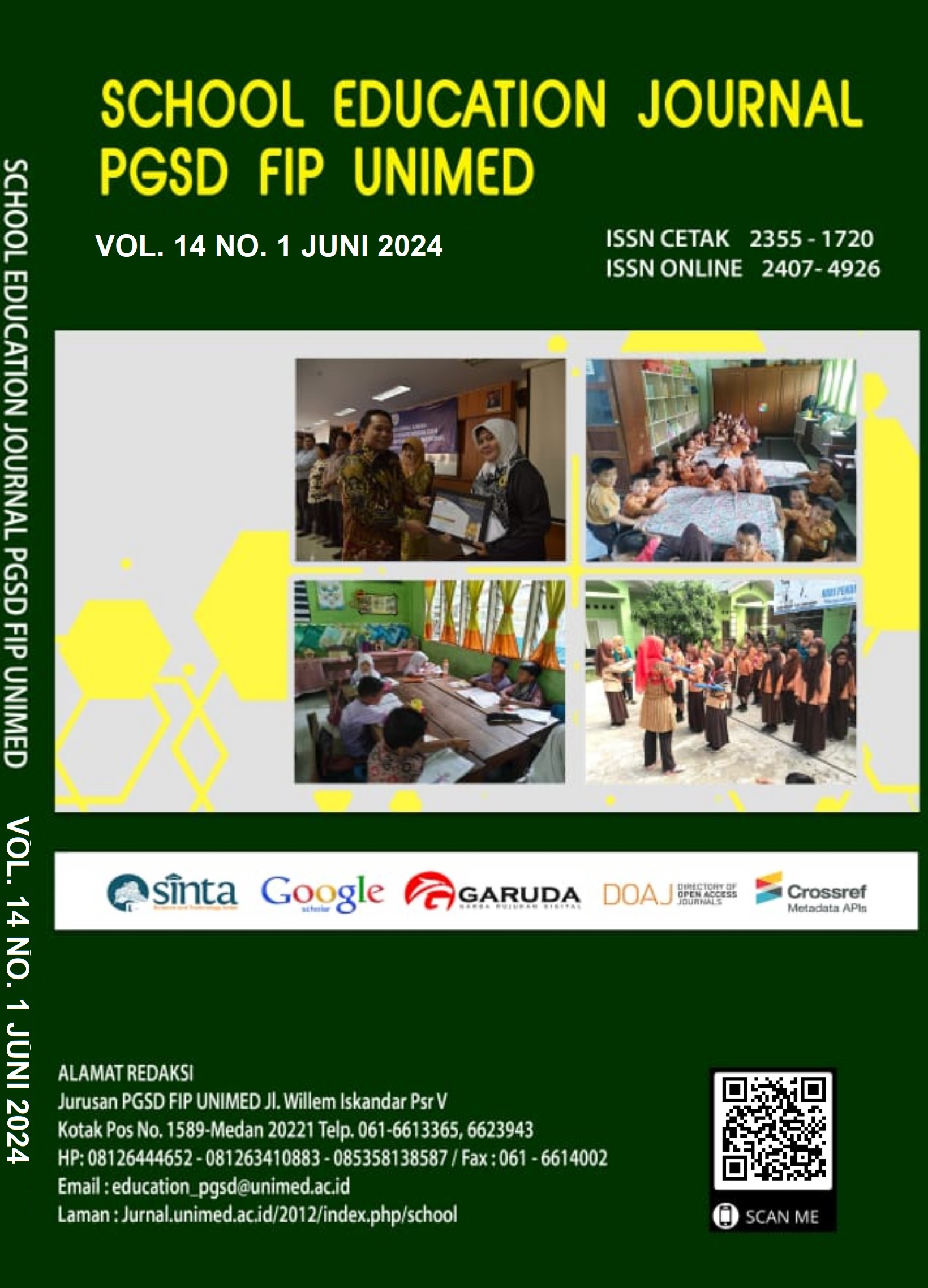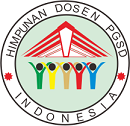DISIPLIN POSITIF SEBAGAI UPAYA MENANGGULANGI PERILAKU BERMASALAH SISWA SEKOLAH DASAR
DOI:
https://doi.org/10.24114/sejpgsd.v14i1.55807Keywords:
Positive Discipline, Problematic Behavior, Primary School.Abstract
The developmental phase of students in Primary School is a period where the desire for freedom emerges within their surroundings. A positive environment has a positive impact on student behavior, while a negative environment can encourage problematic behavior. Problematic behavior can lead to issues both for the students themselves and those around them. Teachers play a crucial role in addressing problematic behavior with a managerial approach, but the use of punishment tends to have negative consequences. Therefore, this study aims to describe students' problematic behavior and analyze the implementation of positive discipline at SD Negeri 02 Pecakaran. This research is a case study with a qualitative descriptive approach, involving students from grades IV, V, and VI. Data were collected through observation, interviews, and checklist sheets. The results of this study indicate that problematic student behavior is identified in four situations, influenced by internal and external factors. The family environment is dominant as a trigger for problematic behavior. Positive discipline is considered an effective alternative solution. Through this approach, the school environment can build a culture that motivates students to behave positively without relying on negatively impactful punishments.References
Aji, I. P., & Tamba, K. P. (2020). Penerapan Disiplin Positif Dalam Pembelajaran Ditinjau Melalui Perspektif Kristen [Positive Discipline In Learning Reviewed Through A Christian Perspective]. JOHME: Journal of Holistic Mathematics Education, 3(2), 216. https://doi.org/10.19166/johme.v3i2.2101
Daradjat, Z. (2001). Kesehatan Mental, 127. Jakarta: Toko Gunung Agung.
Gossen, D. (1998). Restitution: Restructuring School Discipline. Educational Horizons, 76(4), 182“188.
Nelsen, J., Lott, L., & Glenn, H. S. (2007). Positive discipline AZ: 1001 solutions to everyday parenting problems. Harmony.
Shih, C.-L., Wu, C.-C., Lai, F.-P., & Liao, C.-W. (2015). The Study of Teachers™ Attitudes of Positive Disciplines and Class Management Effectiveness in Junior High School. International Journal of Information and Education Technology, 5(7), 507.
Sinaga, S., Boiliu, F. M., Zega, Y. K., & Sapalakkai, R. S. (2023). Diagnostik Kesulitan Belajar dan Perilaku Bermasalah Siswa. REAL DIDACHE: Journal of Christian Education, 3(1), 17“32. https://doi.org/10.53547/rdj.v3i1.365
Sulvinajayanti, S., Saleh, A. A., & Hamang, M. N. (2021). Pengasuhan Disiplin Positif Islami Sebagai Upaya Penurunan Kekerasan Terhadap Anak di Kabupaten Sidrap. JURNAL PENELITIAN, 15(1), 77. https://doi.org/10.21043/jp.v15i1.10241
Published
Issue
Section
License
Authors whose manuscripts are approved are approved as follows:
- The publication rights for all journal manuscript materials published/published on the SEJ (School Education Journal) E-Journal site are held by the editorial board with the author's knowledge (moral rights remain with the manuscript authors).
- The formal legal requirements for accessing this electronic digital journal article are subject to the terms of the Creative Commons Attribution-ShareAlike (CC BY-SA 4.0) license, which means that E-Journal SEJ (School Education Journal) has the right to store, transfer media/format, manage in the form of a database, maintain, and publish articles without asking permission from the author as long as the author's name remains as the copyright owner.
- Manuscripts published/published electronically are open access for educational, research, and library purposes.










